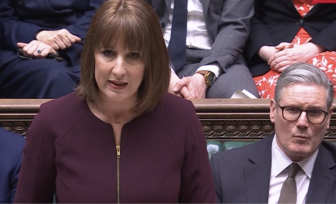
Parts of the property sector reacted with shock and disbelief yesterday following reports that the Treasury is considering a fresh tax hit on landlords as part of chancellor Rachel Reeves’s upcoming Budget. [See: industry reactions].
According to The Times, government officials are exploring the possibility of applying National Insurance (NI) contributions to rental income—a move that could generate an estimated £2bn in additional revenue.
The proposal is reportedly being backed by a number of Labour MPs, government advisers, and a leading think tank, who argue that targeting rental income could help plug a projected £40bn shortfall in the UK’s public finances.
Currently, income from property, pensions, and savings is largely exempt from National Insurance, which is typically levied at 8% on employee earnings. However, sources involved in pre-Budget discussions suggest the Treasury may be considering extending the levy to include rental earnings as part of a wider tax reform package.
The news has sparked concern across the property industry, with critics warning that further tax pressure on landlords could discourage investment, reduce rental supply, and push up rents for tenants.
More details are expected to emerge in the lead-up to the Autumn Budget.
Official figures show that net property income in the UK reached £27bn in the 2022-23 tax year – the most recent period for which data is available. Applying an 8% National Insurance (NI) levy to that income would have raised approximately £2.18bn for the Treasury.
However, concerns are growing that such a move could disproportionately impact smaller landlords, as the NI rate drops to 2% on earnings above £50,000. If this threshold remains in place, landlords earning less than that could face a relatively heavier tax burden.
The most common income band among landlords was £50,000 to £70,000, generating £4.76bn in property income. For the 360,000 landlords in this group, an 8% NI charge could amount to an additional £1,057 per year in tax.
In total, 2.2 million people reported earning income from property in 2022–23. Meanwhile, the English Housing Survey shows that nearly one in five households (19%) rent from private landlords, underscoring how widely any tax changes could be felt.
The idea of imposing NI contributions on rental income was first floated last year by the Resolution Foundation, a think tank previously led by Torsten Bell, now a Labour MP and recently appointed to lead Chancellor Rachel Reeves’s Budget planning team.
While the proposal was not included in last year’s Budget, it is reportedly back under consideration as Reeves faces the challenge of addressing a growing fiscal shortfall—estimated at up to £40bn.
Adam Corlett, principal economist at the Resolution Foundation, said: “With tax rises clearly coming this autumn, the chancellor should use this as an opportunity to make the tax system fairer and more efficient.
“One way to achieve this is to ensure different forms of income are taxed at the same rate, for example, by levying national insurance on income from rental properties. After all, there’s no good reason why landlords should face lower tax rates than their tenants.”
Some Labour MPs and government aides are also said to be lobbying for the measure behind the scenes.
A Treasury spokesperson declined to comment on whether NI changes are being considered as part of the Autumn Budget.
Reacting to reports in The Times that National Insurance might be applied to rental income, Shaun Moore, tax and financial planning expert at Quilter, said: “The proposal to apply National Insurance to rental income would be another significant blow to the buy-to-let sector, which has already been squeezed from all angles in recent years. Landlords have faced a raft of changes, from the reduction in mortgage interest relief to tighter regulations and higher borrowing costs, making it increasingly difficult for amateur landlords to operate profitably.
“On top of this, the abolition of ‘no-fault’ evictions under the Renters’ Rights Bill means landlords now face far greater challenges in regaining possession of their properties, adding another layer of complexity and risk to letting.
“Introducing an additional tax burden risks accelerating the exodus of landlords from the market, further reducing the supply of rental properties at a time when demand remains high. This imbalance will inevitably push rents even higher, worsening affordability for tenants and deepening the housing crisis. Similarly, the addition of NI would almost certainly be passed on to renters through higher rents, compounding the problem.
“We would also expect to see the increasingly popular practice of holding properties within a limited company structure skyrocket as landlords look for ways to mitigate the impact of these changes. Ironically, this could mean the government’s expected revenue boost is far smaller than anticipated, while the unintended consequences for renters and the broader housing market could be severe.
“A more balanced approach might be to revisit the changes to mortgage interest relief. Allowing landlords to deduct mortgage interest before calculating taxable income, then applying income tax and even NI if necessary, would create a fairer system and reduce the incentive for landlords to incorporate, while still ensuring the Treasury raises revenue without destabilising the rental market.”
Industry reacts as landlords face National Insurance tax proposal
Read the orginal article: https://propertyindustryeye.com/another-significant-blow-to-btl-sector-as-reeves-considers-applying-ni-on-rental-income/


